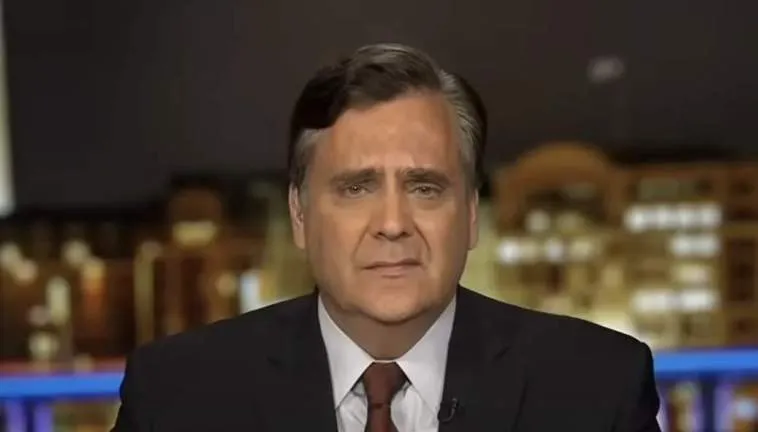Below is my column in the Hill on why I believe the Trump prosecution would warrant an admittedly rare venue change.
I am still hoping that Judge Juan Merchan has the integrity to dismiss this clearly invalid indictment.
Given Bragg’s failure to even state the key offense allowing him to bring these 34 felonies, Merchan should have scheduled a hearing on the threshold legal questions in two weeks — not schedule all motions to be heard in December.
Indeed, with even legal analysts on CNN and MSNBC expressing disbelief at this indictment, few beyond Karen Friedman Agnifilo and
(Jonathan Turley) “Filmmaking is not about the tiny details. It’s about the big picture.” Thus did the title character of the movie, “Ed Wood,” explain why arguably the worst filmmaker of all time was unconcerned with obvious gaps in logic, or scenes where cardboard tombstones toppled in graveyards. Wood said he relied on the “suspension of disbelief” of his horror-film fans.
If there is an Ed Wood school of prosecution, Manhattan District Attorney Alvin Bragg could prove to be its most apt pupil.
Indicting Donald Trump on 34 counts of falsifying business records, Bragg left out a small detail: The underlying felony Trump allegedly sought to conceal over and over. That, apparently, is left to the suspension of disbelief.
For many weeks, experts on both the left and the right expressed doubts that Bragg could charge Trump with falsifying business records, a misdemeanor with a now-expired two-year statute of limitation. To be able to file such a charge, Bragg would need to kick it up to a felony by alleging it was committed to conceal or further another crime — in this case, a federal campaign violation.
The problem is that the Justice Department declined to bring such charges. The reason was likely due to a tiny problem: There is no campaign finance violation in Trump paying women to hush up alleged affairs. Moreover, even if there were a violation, Bragg is not a federal prosecutor. In other words, his case is as implausible as Wood’s cardboard tombstones.
When asked by reporters what crime was being referenced 34 times, Bragg simply stated that he was not required to state the crime in the indictment. Despite becoming the first prosecutor to charge a former president, Bragg felt no compulsion to explain the claim that kicked the misdemeanor up to a felony and allowed a longer statute of limitations.
Bragg undoubtedly knew that New Yorkers would likely suspend disbelief when the name on the indictment was “Donald Trump.” After all, when Bragg ran for office, he was no more specific; he merely promised to bag Trump on some criminal charge. The actual crime would be named at a later date.
Bragg also undoubtedly counted on Judge Juan Merchan suspending judicial disbelief by not asking for the full basis of the criminal charges. Thus far, he appears to have been correct: Merchan set the next hearing for December, so Bragg has eight months to come up with an actual crime.
Even if the judge ignores the glaring legal problems with this flawed indictment, he must decide where a trial should be held. The correct answer should be “Anywhere but Manhattan.” However, the judge is likely to deny that change of venue motion, and a denial would say a great deal about this case.
Bragg’s cavalier attitude only magnifies the view that Manhattan is the wrong place for this trial.
It is not simply that the district attorney ran on a pledge to indict this defendant. The problem is that he was elected on that pledge by the citizens of this district — the same citizens who would comprise the jury pool in Trump’s case.
When Bragg was elected, he reviewed the theories being advanced by an attorney brought into the office for the purpose of nailing Trump. Yet Bragg and some of his team reportedly balked at the efforts of fellow attorneys Mark F. Pomerantz and Carey R. Dunne; Bragg halted the case, and Pomerantz and Dunne resigned. Their resignation letter was mysteriously leaked to the media and became part of a public pressure campaign; Pomerantz then wrote a tell-all book that many legal observers considered to be an outrageous, unprofessional effort to push for Trump’s indictment.
Bragg faced an outcry from constituents who called on him to make good on this election promise.
So, now we have a case brought by a prosecutor who campaigned on bagging Trump, to be tried before a jury selected from a district that elected Bragg in part for that reason — a district that also voted against Trump, 84.5 percent to 14.5 percent, in the 2020 presidential election.
While a change of venue to a place like Staten Island would not necessarily change the judge or prosecutor, it would change the jury pool.






